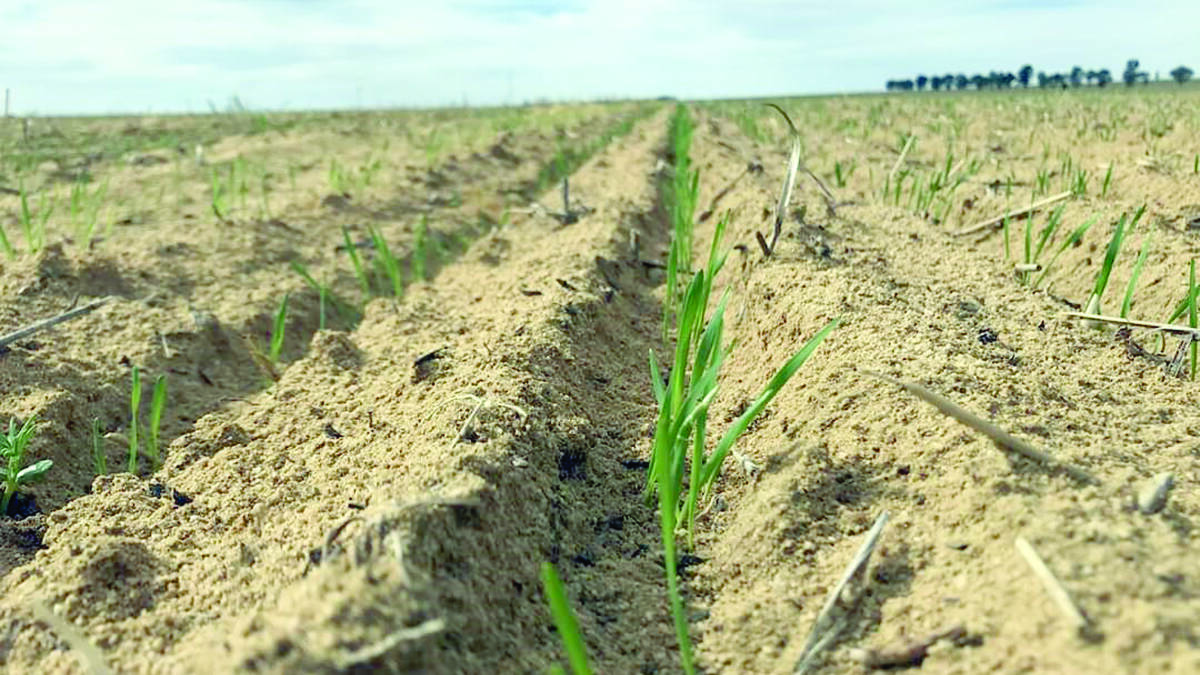
THE possibility for certification, marketing and global distribution of carbon neutral grain is on the table after Wide Open Agriculture (WOA) and the CBH Group signed a non-binding Memorandum of Understanding (MoU) to explore the feasibility of the idea.
Subscribe now for unlimited access to all our agricultural news
across the nation
or signup to continue reading
Under the agreement, both organisations will look into sourcing, certifying, marketing and distributing carbon neutral oats, barley and lupins from Western Australia.
The project will also consider the potential for regenerative farming practices to support this goal.
WOA carbon neutral agriculture manager Lachy Ritchie said the concept for carbon neutral grain was to produce grain with the lowest possible greenhouse gas emission footprint.
"You then purchase certified carbon credit units to offset any remaining emissions, with the result being a grain with a net-zero emission footprint," Mr Ritchie said.
"Carbon Neutral Certification is a formal process regulated by a third-party accrediting organisation and in this instance, we will work to the Australian government's Climate Active - carbon neutral standard."
CBH head of accumulation Trevor Lucas said the pilot was about establishing whether or not it could be measured and accredited.
"First things first, we need to nail down the complexities of on-farm carbon emissions, which is the broader set of work from Wide Open Agriculture's perspective," Mr Lucas said.
"From a marketing perspective, CBH will start to canvas markets pretty soon, we don't have a product to sell and deliver, but we will start delivering the concept to our customers and canvassing what market access or premiums that might provide.
"To be able to have potentially differentiated products that can allow us access to more and potentially premium paying, markets and provide that back to WA growers would be extremely beneficial."
Mr Ritchie said under the agreement the company would be focused on the logistics and supply chain side of things, in regards to carbon neutrality.
"We have a group of farmers that we know who have started using regenerative farming practises which we believe will result in lower carbon emissions," Mr Ritchie said.
"We will effectively test the feasibility of if we can bring carbon neutral grain to market in a cost-effective and practical manner.
"We are very confident that it can be done, but the real question is what is the cost of measurement and assessment, how many offset credits need to be purchased, does the economics all stack up and ultimately, can we deliver a net benefit to growers?"
WOA board member and CBH grower Stuart McAlpine said he was excited about the project as it had the potential to be very inclusive.
"I'm a firm believer in not pushing people, but pulling them into change and if there are clear market signals out there with clear pathways and benefits, that will be quite interesting," Mr McAlpine said.
"It's a great process because it's going to be market-driven, but we've recognised that it's a continual journey.
"It's outcomes-based rather than input-controlled which is a far better result as it allows us, as farmers, to choose the methodology as there are many different ways to adopt regenerative practises."
Mr Ritchie said the project was being conducted in line with the 2020/21 southern hemisphere growing season.
"We will basically be starting work on this immediately, start talking to potential customers and working with the small group of farmers," Mr Ritchie said.
"Hopefully we will have answers by mid-next year but we haven't determined what the next stage will look like yet.
"Once we have all of the information at hand, we will collectively make some decisions and explore our options with CBH."
Mr McAlpine said it was clear that there was more of a consumer demand for carbon neutral produce hitting the market.
"Having been on the journey of regenerative agriculture for a fair while now, I've seen how I've got more efficient and reduced my own carbon footprint, but so far I haven't really been able to capitalise on that and it's exciting to be potentially rewarded by that down the line," Mr McAlpine said.
"We can be producing our food with a lot less impact on our soils and improve them to a greater level than what we are now by promoting more natural solutions, rather than the plethora of chemical solutions we get thrown at us.
"I'm not knocking any of those, they do work, but they do have an impact on the carbon footprint and they are costing us a lot of money as an industry."
If successful, the project could lead to one of the world's first carbon neutral certified products for buyers seeking more sustainable grain alternatives.

